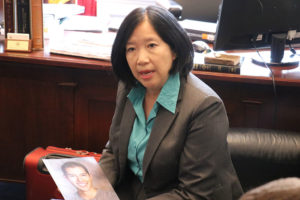 The Anti-Hazing Coalition (AHC) is a collaboration of the National Panhellenic Conference, the North American Interfraternity Conference and parents whose children were tragically killed by acts of hazing. The AHC is working to eradicate hazing through aggressive student educational outreach, new state-level efforts to strengthen criminal and civil penalties for hazing and federal advocacy to use transparency to make lasting cultural change in student organizations and on university campuses. Every student has the right to learn and thrive in a safe and healthy campus environment.
The Anti-Hazing Coalition (AHC) is a collaboration of the National Panhellenic Conference, the North American Interfraternity Conference and parents whose children were tragically killed by acts of hazing. The AHC is working to eradicate hazing through aggressive student educational outreach, new state-level efforts to strengthen criminal and civil penalties for hazing and federal advocacy to use transparency to make lasting cultural change in student organizations and on university campuses. Every student has the right to learn and thrive in a safe and healthy campus environment.
Parents and families include Rich and Maille Braham, parents of Marquise Braham; Sylvia and Shawn Cumberland, parents of Nicky Cumberland; Deb Debrick, mother of Dalton Debrick; Stephen and Rae Ann Gruver, parents of Max Gruver; Carole King, mother of Justin King; Lianne and Brian Kowiak, parents of Harrison Kowiak; Jim and Evelyn Piazza, parents of Tim Piazza; and Kathleen Wiant, mother of Collin Wiant.
Other organizations within the fraternal community—Hazing Prevention Network, the Association of Fraternity/Sorority Advisors (AFA), Association of Fraternal Leadership & Values (AFLV), National APIDA Panhellenic Association, Southeastern Greek Leadership Association (SGLA) and Northeast Greek Leadership Association (NGLA)—have committed their support to these efforts.
The coalition will:
- Pursue state-based anti-hazing legislation that delivers greater transparency through stronger hazing reporting requirements, strengthens criminal penalties and encourages prosecution, calls for university accountability for bad actors, provides amnesty to encourage people to call for help and calls for student education.
- Expand awareness and intervention education, including providing a platform for the parents to speak to tens of thousands of college students.
- Engage fraternity and sorority members in educating high school students to confront hazing and bullying.
Since 2018, these parents have spoken to more than 150,000 students. Parents are also being invited to speak with students — including fraternity men and sorority women — at both the local and national levels.

